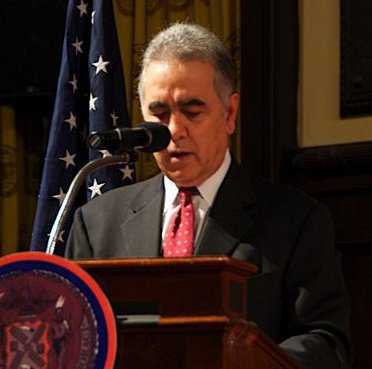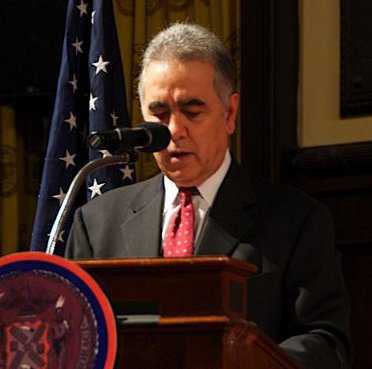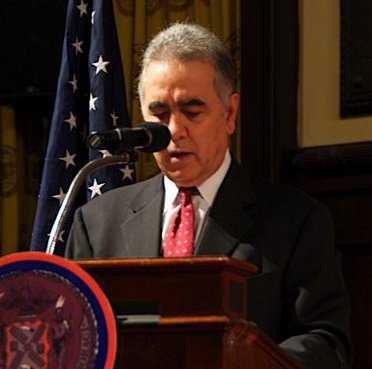Turkey’s leaders have been threatening France for months with various reprisals should the French government pass a law making it illegal to deny the Armenian Genocide.
Ignoring Turkish threats and blackmail, the French Parliament adopted a bill on December 22, 2011, criminalizing denial of the Armenian Genocide. The Senate followed suit on January 23, 2012, with a vote of 127-86, after a 7-hour debate. The new law, to be signed soon by Pres. Sarkozy, carries a one year jail term and a fine of $60,000 for anyone denying the Armenian Genocide. Every single member of the French legislature, even those voting against the bill, stated that they had no doubt whatsoever about the facts of the Armenian Genocide.
The hour of truth has now arrived. One wonders if Turkey’s leaders have the courage to carry out their bombastic declarations. We would like to ask them two questions: 1) Are you all talk and no action or, as the saying goes, is your bark worse than your bite? 2) Will you be taking short-term face-saving measures or more serious and permanent steps?
Unlike a month ago, the Turkish public will not be satisfied if the Ambassador is withdrawn, only to be sent back in two weeks. Also, Turks may not be too impressed by Prime Minister Erdogan’s announcement that he would no longer visit Paris.
While Turkish officials are recovering from the shock of the French vote, we wish to offer some tips on how Turks can make a bad situation even worse. In its fury, the Turkish government may take retaliatory measures not only against France, but also all countries that have recognized the Armenian Genocide. Such extreme, irrational, and self-defeating actions would contribute to Turkey’s isolation and hurt its own interests. Below are suggested ideas on how Turkey could settle scores with France and other perceived adversaries:
1) Withdraw the Turkish Ambassador from France and do not send him back until the French government renounces its acknowledgment of the Armenian Genocide and the newly adopted French bill.
2) Expel the French Ambassador from Turkey and shut down the French Embassy.
3) Break all economic, military, cultural, and political ties with France.
4) Collect all French products such as chocolates and wines from store shelves throughout Turkey and dump them in the sewer; and ban French fries and French kissing!
5) Cancel all Turkish Airlines flights to French cities and do not allow Air France flights to Turkey. Place similar restrictions on French ships.
6) Prohibit teaching of French in Turkish schools and shut down private French schools in Turkey.
7) Forbid access to all French websites.
8) Discontinue Turkey’s efforts to join the European Union, in view of the expected submission of similar measures on genocide denial to all 26 EU member countries.
9) Cancel Turkey’s membership in the Council of Europe because in 1987 the European Parliament recognized the Armenian Genocide.
10) Withdraw from the United Nations because in 1985 the UN Human Rights Commission adopted a report recognizing the Armenian Genocide.
11) Ban all Turkish official visits to France.
12) Expel all French citizens from Turkey and demand that all Turkish citizens immediately leave the territory of France.
13) Do not allow French tourists and businessmen to enter Turkey.
14) Shut down French automobile factories in Turkey, causing the unemployment of thousands of Turkish workers.
15) Rename all French streets in Turkey to Algerian and North Korean names.
16) Adopt a resolution by the Turkish Parliament accusing France for the so-called Algerian “genocide.”
17) Deport all citizens of Armenia working illegally in Turkey. Deprive them of all food and water during their long march from Istanbul to Armenia or, even worse, to the Syrian desert!
18) Withdraw all private and public Turkish funds from French banks.
19) Blacklist all French books, movies, newspapers and TV programs in Turkey.
20) Arrest French citizens in Turkey in retaliation for Turks imprisoned in France for denying the Armenian Genocide.
The French Senate’s decision is part of the high price the Turkish government has been paying for the past 100 years for its persistent denial of the Armenian Genocide and the heinous crimes committed by its Ottoman predecessors. Until Turkey acknowledges its guilt and restores the Armenian lands and properties to the descendants of Genocide victims, it will continue to face serious challenges from other countries and will be denied a place in the family of civilized nations.












